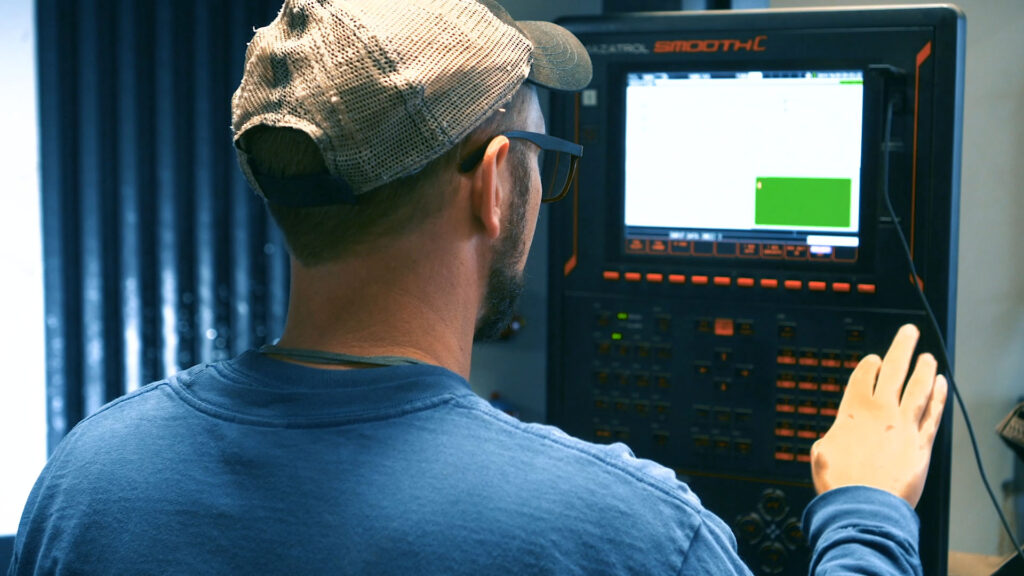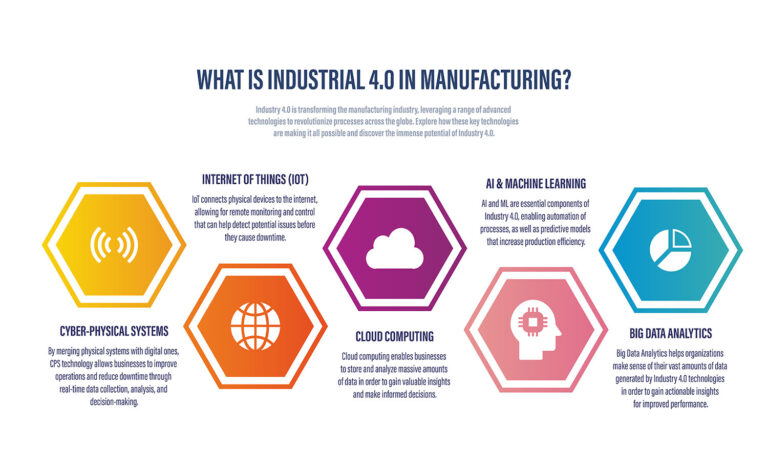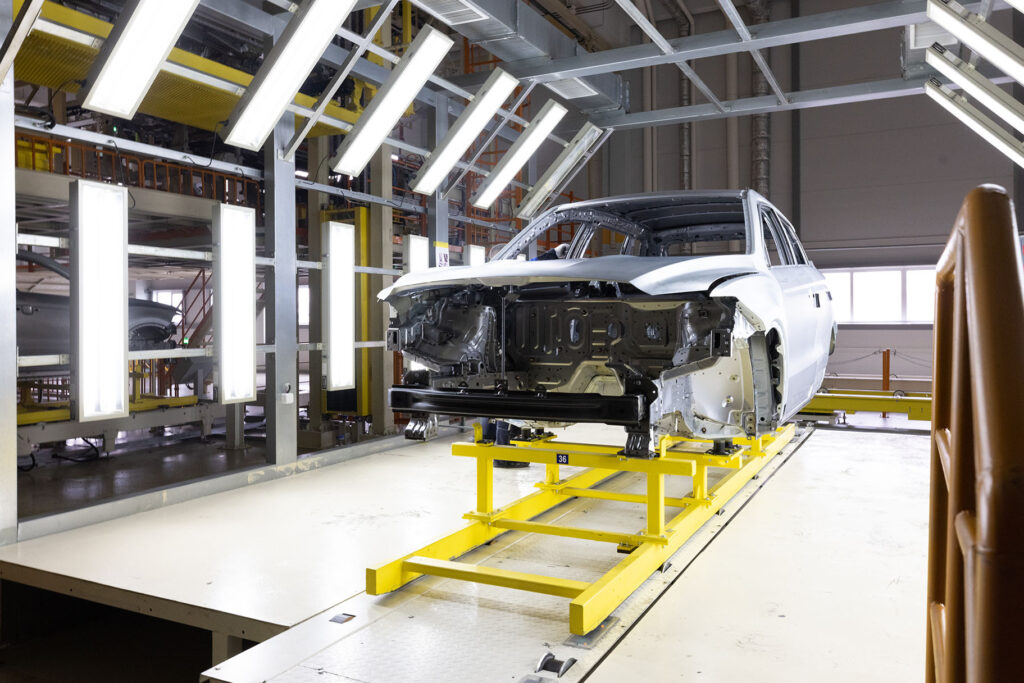
Industry 4.0 refers to the fourth industrial revolution. This integrates cyber-physical systems, the Internet of Things (IoT), cloud computing, artificial intelligence, big data analytics, and other digital technologies into manufacturing processes.
This integration increases efficiency, improves quality control, reduces downtime, and enhances safety, among other benefits. The importance of Industry 4.0 in manufacturing plants cannot be overstated. It allows businesses to stay competitive in an increasingly digital landscape.

What is Industrial 4.0 in manufacturing? Industry 4.0 is built upon a foundation of advanced technologies that are revolutionizing manufacturing processes across the globe. To fully understand how Industry 4.0 is transforming the manufacturing landscape, it’s essential to explore the key technologies that make it all possible.
1
This is the integration of physical systems with digital systems. It enables real-time data collection and analysis, improving decision-making processes and increasing efficiency.
2
It connects physical devices to the internet, allowing remote monitoring and control. This technology is particularly useful for predictive maintenance. It allows real-time equipment monitoring and identifying potential issues before they cause downtime.
3
This technology allows for storing and analyzing massive amounts of data, enabling businesses to make informed decisions based on real-time insights.
4
They are essential components of Industry 4.0, allowing for the automation of various processes and the creation of predictive models to optimize mass production.
5
It helps businesses to make sense of the vast amounts of data generated by Industry 4.0 technologies. This enables them to identify trends, optimize processes, and make informed decisions based on real-time data.
Industry 4.0 technologies are rapidly changing the face of manufacturing, providing businesses with unprecedented control and efficiency. Here are some of the key ways that these technologies are being integrated into manufacturing plants:
1
This approach involves using sensors, data analytics, and other technologies to optimize production processes and improve product quality. By collecting and analyzing data from various sources smart factories can gain insights into every stage of the manufacturing process. From raw materials to finished products, they can identify potential problems and make changes in real-time.
2
It utilizes IoT sensors and other technologies to monitor equipment in real-time. This allows it to detect potential issues before they lead to costly downtime. Businesses can perform repairs before equipment fails by predicting when maintenance is required, minimizing downtime, and reducing costs.
Predictive maintenance also enables businesses to optimize maintenance schedules, reducing the time and resources needed to keep equipment running smoothly. Assembly lines can be optimized to increase production, improve quality control, and reduce costs.
3
The industrial world is in a state of rapid evolution thanks to the digital transformations and advancements happening in technology. The manufacturing industry, in particular, is embracing new innovations that are sure to delight even the most ardent tech enthusiasts.
One such advancement that has proven to be rather useful is creating a virtual replica of physical assets, which allows for real-time monitoring and analysis. The process may seem complicated, but it has the potential to save manufacturers money by identifying inefficiencies and potential issues in complex manufacturing processes.
Digital technologies like this are going to play a significant role in the future of the manufacturing industry, as businesses explore new business models and embrace the industrial internet.
4
These technologies allow for immersive training experiences. This enables workers to gain real-world hands-on experience with complex equipment in a safe, simulated environment. AR and VR can also be used for remote collaboration, allowing experts to guide and support workers in different locations.
5
These technologies transform manufacturing by automating repetitive or dangerous tasks, freeing workers to focus on more complex tasks. Robotics and automation can also help to improve product quality by reducing the likelihood of errors and inconsistencies.
6
Industry 4.0 technologies can also optimize supply chain operations, providing businesses with real-time visibility into inventory levels, logistics, and delivery schedules. This helps to reduce waste, improve efficiency, and ensure that products are delivered to customers on time and in full.

As manufacturing processes continue to advance, it can be unsettling for companies to keep up with the latest technologies. Among these technologies are additive manufacturing (3D printing) and artificial intelligence (AI), which can be intimidating for many manufacturers.
However, with the right strategies and approaches, companies can seamlessly integrate these Internet 4.0 technologies into their manufacturing plants.
1
The first step in integrating Industry 4.0 technologies is to identify the specific areas of your manufacturing plant where these technologies can be implemented to improve efficiency and productivity.
Here are some areas of your manufacturing plant that you can consider for implementation:
2
Once the areas for implementation have been identified, the next step is to select the appropriate technologies and equipment. This may involve investing in new hardware and software systems and training employees to use these systems effectively. Some examples of technologies that may be useful in implementing Industry 4.0 include:
3
When integrating new technologies into your manufacturing plant, it is important to ensure these new systems are compatible with existing ones. Companies can upgrade existing systems or invest in new systems designed to work seamlessly with Industry 4.0 technologies.
4
Finally, it is important to train employees and implement processes that support the successful integration of Industry 4.0 technologies. This may involve providing training on how to use new systems and technologies and implementing processes that support the efficient and effective use of these systems.
As we look towards the future, it is clear that the successful adoption and integration of Industry 4.0 technologies will be a critical factor in the competitiveness and sustainability of manufacturing businesses worldwide.
Ready to start implementing Industry 4.0 technologies in your manufacturing plant? Schedule a consultation with our team to explore your options and start optimizing your operations.